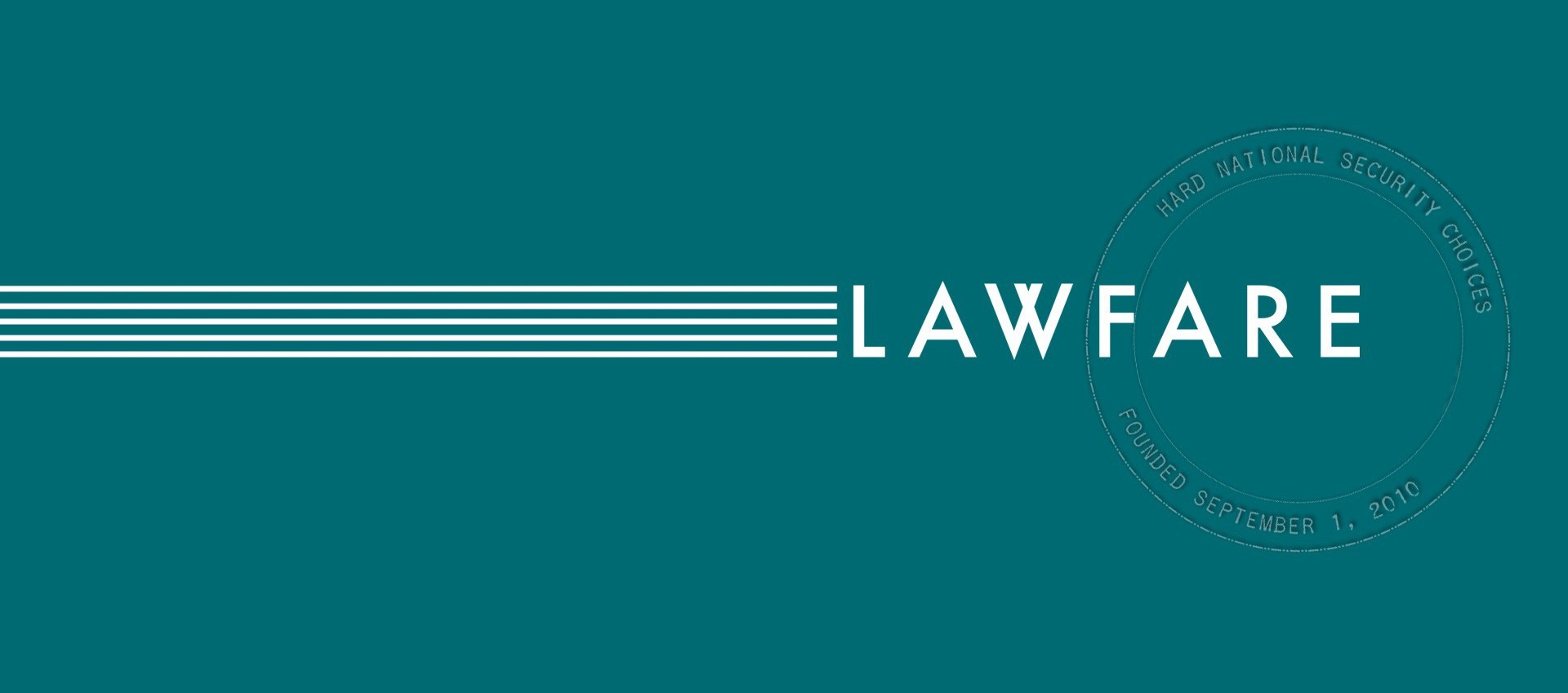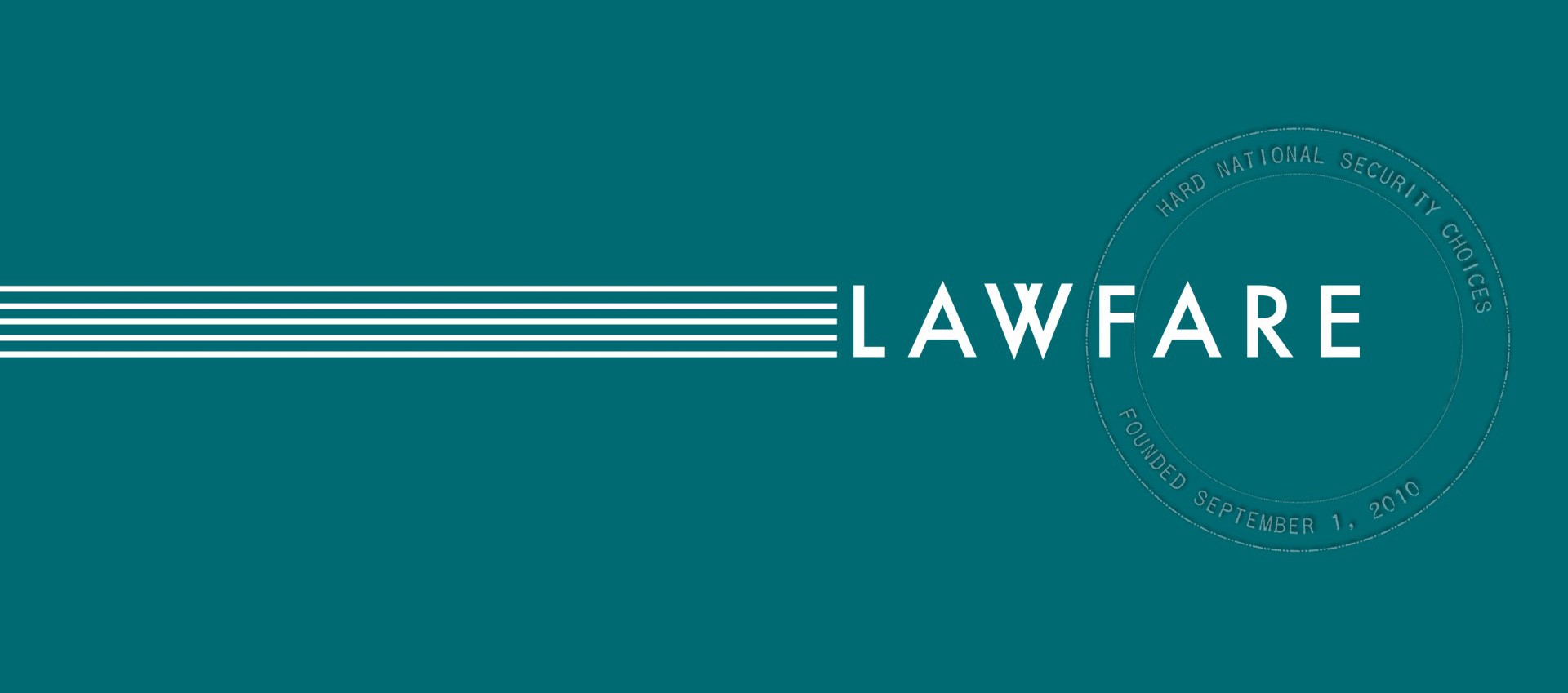In Defense of FAA Section 702: An Examination of its Justification, Operational Employment, and Legal Underpinnings
The tension between a Nation-state’s need to detect and interdict threats to life, safety and property inevitably conflict with the privacy interests of its individual citizens and private sector entities. Increased flattening and convergence of global communications will continue to exacerbate this tension, as Nation states seek to pursue these twin goods within the common spaces shared by protected populations and those who would hold society at risk.
Published by The Lawfare Institute
in Cooperation With

The tension between a Nation-state’s need to detect and interdict threats to life, safety and property inevitably conflict with the privacy interests of its individual citizens and private sector entities. Increased flattening and convergence of global communications will continue to exacerbate this tension, as Nation states seek to pursue these twin goods within the common spaces shared by protected populations and those who would hold society at risk.
The US Constitution’s preamble calls on the government to achieve a “common defense” while securing “the blessings of liberty.” The U.S. approach to security achieves both goals by empowering the executive branch to defend the nation, while providing the legislative and judicial branches with significant oversight and meaningful involvement.
In this Paper, we make the case that the provisions of Section 702 of the FISA Amendments Act are both necessary and appropriate under the US Constitution's mandate that the government pursue all of its aims (e.g., security and privacy). Moreover, the paper provides compelling evidence to rebut widely circulated myths regarding the actual implementation of Section 702, most notably that NSA exceeded either the intent or the letter of its authorities.
In Defense of FAA Section 702: An Examination of Its Justification, Operational Employment, and Legal Under... by Hoover Institution
We believe that Congress should reject calls to repeal or amend Section 702 when it comes up for reauthorization next year. The statute already provides a well-regulated system for intelligence agencies to collect the foreign intelligence from non-U.S. persons who are not located in the United States. The National Security Agency has stated that Section 702 is its single most significant tool for identifying terrorist threats. The program is overseen by all three branches of government and has an unprecedented system of checks and balances. In the past seven years, the program has been remarkably effective, both at protecting the privacy of U.S. persons and obtaining valuable intelligence from foreign sources. Accordingly, Congress should reauthorize this valuable foreign intelligence program.
The criticisms of Section 702—though often well-intentioned—generally arise from widespread misunderstandings of the program’s capabilities, controls, and results. There are numerous reasons for this confusion: the complex structure of the program, the understandable passions provoked by the Snowden disclosures, and the inherently secret nature of classified information, to name a few. As Congress considers reauthorization of this program, we hope that legislators, the press, and the public have a full and complete understanding both of what Section 702 is, and what it is not.
In this paper, we aim to provide the facts that are necessary for a comprehensive and balanced examination of Section 702. A full understanding of government power can never be gained through an examination of a given capability alone. Rather, it is necessary to consider any capability in the context of its purpose (against which criteria should be constructed to gauge its success) and the controls imposed on it (to ensure that the capability is constrained to its intended application). In this manner, purpose and controls constitute the moral equivalent of bookends that frame and constrain the creation and employment of any government power. This is especially true in the case of government power which must always be framed in light of the constraints embodied in the Constitution, to include the limited purposes for which the government was formed and the explicit constraints upon its authorities characterized in both the articles and the first ten amendments. While less frequently showcased than its counterparts, the Tenth Amendment is perhaps the most significant in this regard: “The powers not delegated to the United States by the Constitution, nor prohibited by it to the States, are reserved to the States respectively, or to the people.” Put another way, if a given power is not explicitly granted to the government, it cannot exercise it.
In order to place Section 702 in this context, we explore the three interdependent aspects of the law. What is the purpose of the authority (and does that purpose remain true today)? What capability did the law and its attendant implementation bring into being? What are the controls imposed on the use of the authority? After describing the purpose, capability, and controls of Section 702, we examine the program’s operational results and consider Fourth Amendment concerns that some critics have raised.
A thorough examination of the purpose, capability, and controls of Section 702 paints a very different picture than the one seen in many critical accounts: the program is a limited and highly effective exercise of the executive branch’s constitutional authorities, designed to provide for a common defense while protecting individuals’ constitutional liberties. As we explain, there is no evidence of government overreach with Section 702, and a number of statutory safeguards would prevent such hypothetical abuses from occurring in the first place.
Many of the concerns that critics have raised could be addressed by a more frank and open public dialogue about the operations conducted under Section 702. But the answer, we argue, does not lie in changing a law that has served the country remarkably well.






